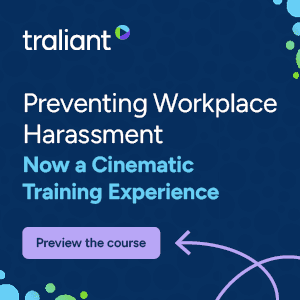When challenged in court, it’s become common practice for companies to argue they’re being attacked by patent trolls. But the growing availability of artificial intelligence could help make those overblown fears a reality, says patent attorney Robert Plotkin.
Facing a patent claim against its Auto Shift technology, Tesla’s legal team has defended itself by arguing the patent holder in question is little more than a “patent troll,” attempting to extort money from the multibillion-dollar car manufacturer through a frivolous suit.
But enforcing a patent doesn’t make one a troll, and understanding how to address the rights of innovators is anything but frivolous. Even patent holders that don’t commercialize their inventions have every right to control their use.
At the same time, there really are patent trolls out there that seek to earn their keep by gumming up the innovation economy. Figuring out how to apply and enforce patent law in a way that straddles the existence of both kinds of cases will be a key issue facing the U.S. Patent and Trademark Office (USPTO) and the federal courts, especially as artificial intelligence (AI) becomes a more prominent driver of inventions.
The term “patent troll” has become the go-to defense of executives and attorneys who defend large companies accused of patent infringement, generally by much smaller inventors and companies. The derogatory term took hold decades ago as a popular way to dismiss patent holders, especially those who don’t commercialize their inventions (otherwise known as non-practicing entities or NPEs), casting them as nuisances who are taking advantage of loopholes, sitting on extraneous patents in the hopes that a large company will one day come along so that they may exact their toll.
But genuine patent trolls — those who assert patents frivolously merely to extract nuisance settlements — represent just a small part of patent infringement claims, and NPEs are being maligned in their attempts to defend their hard-earned intellectual property. Not every inventor may want to bring their product to market, nor have the resources to do so. But none of these things make an innovator’s claim on a patent any less legitimate.
Thomas Edison is one of the most famous inventors in U.S. history and is someone who held over a thousand patents — hundreds of which cover products that he never attempted to manufacture. Yet few would argue that Edison’s claim to these inventions was any less legitimate for their lack of commercialization.
The immediate concern of many is that an AI-powered system could be used to come up with thousands of thinly patentable inventions and to make writing patents for those inventions trivially easy and inexpensive, creating an AI-fueled patent factory for the businesses that are able to leverage this technology.
And that’s not an outlandish concern, either; to some degree the threat is real and happening already. Google announced that its AI system had come up with thousands of new potential drug types, and companies like Eli Lilly have announced plans to begin producing some of their own newly AI-invented molecules — all of which could potentially be patentable.
But given certain changes to the legal landscape that have occurred over the past few decades, the risk of an army of AI-boosted patent trolls emerging to threaten companies’ access to innovation is unlikely. The 2006 eBay v MercExchange decision, for example, made obtaining an injunction against a business significantly more difficult, weakening much of the potential leverage that these trolls had to force companies to reach a settlement.
Meanwhile, the creation of the Patent Trial and Appeal Board (PTAB) in 2012 allows for a post-grant review of patents to occur, meaning even if a patent troll is successful in obtaining a patent, their ability to keep the patent is far less certain.
While these decisions help protect businesses from patent trolls, NPEs and small-business patent holders have seen their ability to enforce their legitimate patents hampered — especially when up against big businesses. The PTAB has shown a weakness for Big Tech companies that want patents thrown out for being too broad, meaning corporations are more empowered to fight any patent decision they don’t like. Similarly, the inability to force an injunction on companies that are accused of patent infringement has given the infringers more of an incentive to let the legal process draw out, creating a financial burden for the groups asserting their patents.
All this means the key advice for founders and inventors remains the same as it ever was — even in the age of AI: file patents early and file patents extensively.
Whether or not an inventor plans on bringing their invention to market, having patent protection from the outset helps inventors prevent future disputes and strengthens their market position when conflicts do arise. But it’s also key to have extensive patent protection, which requires filing patents that describe not only the existing uses of an invention but also every other potential use. It’s a process that requires creativity and due diligence — and a fair bit of ego in the mix is actually helpful.
For those seeking patents, the key will be to fight fire with fire and leverage AI — not to come up with the invention itself, but to fill out and expound on the potential uses and variations of a given invention in the patent application, lessening the administrative and logistical burden of the inventor and helping to ensure extensive and airtight protection.
AI shouldn’t be viewed as a threat to inventors but a boon, untapping the potential of individuals and small companies to create and protect their innovations more rapidly and extensively than before. Adapting to these changes needs to be a key focus of the USPTO and one that companies and individuals would be wise to keep an eye on.




 Robert Plotkin is a patent attorney specializing in AI patents. He's also the co-founder of Blueshift IP: Software Patent Experts.
Robert Plotkin is a patent attorney specializing in AI patents. He's also the co-founder of Blueshift IP: Software Patent Experts. 







